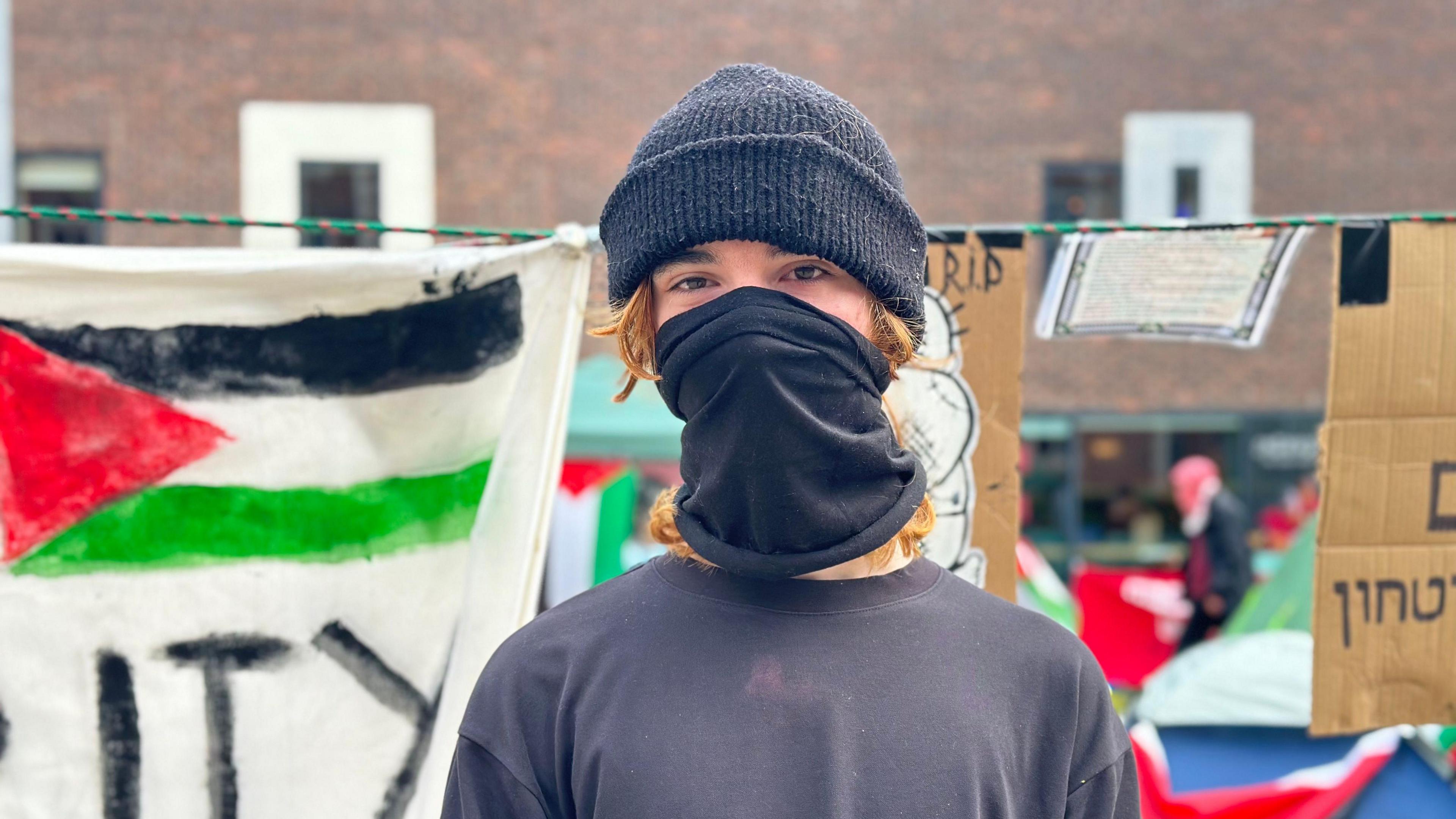University goes to court to end Gaza protest camp
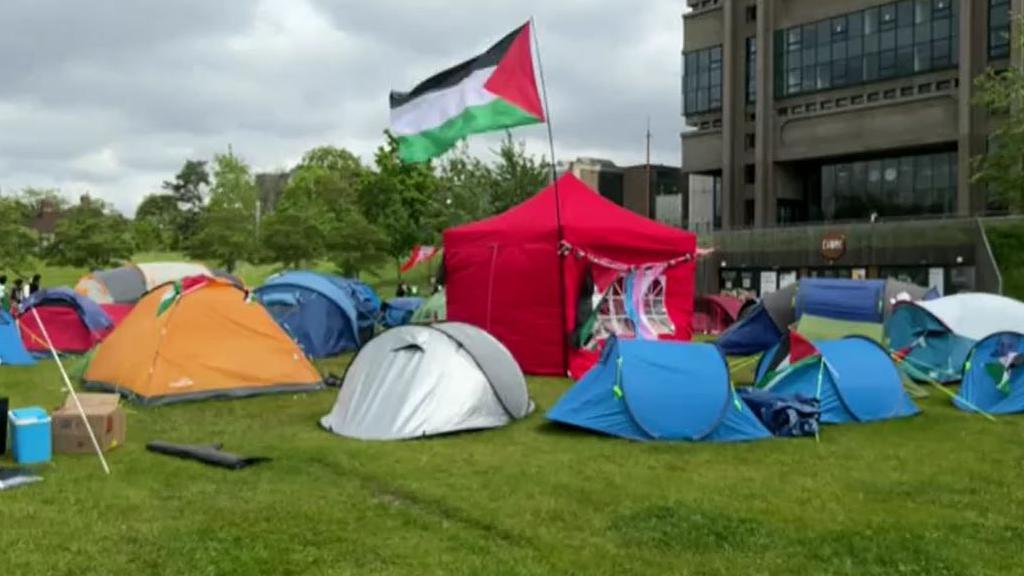
Pro-Palestinian demonstrations like the one in Birmingham have been taking place at a number of university campuses across the country
- Published
A university has requested a court order to end a pro-Palestinian encampment on its land.
The University of Birmingham's vice-chancellor Adam Tickell said the decision was taken with "a heavy heart", external to "end disruption being caused to university land and activity".
Mr Tickell said he respected the right to peaceful protest but claimed an escalation recently had seen buildings damaged and staff intimidated.
A spokesperson for the camp, which they called the "Birmingham liberated zone", said it was "disappointing" the university was taking legal action and they were themselves seeking legal advice.
Students at institutions across the country have been camping out for several weeks to protest about the Israel-Gaza conflict.
The Birmingham encampments began in early May outside the library and in Chancellor's Court, Mr Tickell said.
In a memo to staff, he wrote representatives refused offers to meet with senior university representatives "unless specific demands were agreed to in advance", meaning discussions could not progress.
"Instead, they have chosen to escalate actions, crossing the line into completely unacceptable behaviour," he said.
He described mask-wearing groups "shouting at, harassing and intimidating staff", vandalising buildings with spray paint and "disrupting activities" such as their graduation ball.
He also alleged external groups and speakers were invited on to campus without permission.
The spokesperson for the camp said the student-staff coalition in the encampment had no involvement in direct action carried out by activists on the campus.
"We reject the claim that our peaceful encampment is intimidating to students and staff," they added.
UN Security Council backs US Gaza ceasefire resolution
- Published11 June 2024
Six months on, how close is Israel to eliminating Hamas?
- Published6 April 2024
The vice-chancellor said the decision to request a possession order, external to evict the groups had not been taken lightly.
"I absolutely recognise that some students and staff may wish to take part in protests and respect their right to do so peacefully within the law and university regulations," he said.
"However, the rights to protest and to freedom of speech do not include setting up a camp and occupying university land, to the detriment of the rest of the university community.
Mr Tickell said his team would continue to seek an alternative solution that would allow protesters to express views while "allowing the university's normal activities to continue".
"This action is not about taking a political position as an institution," he wrote.
"I am unequivocal in recognising that this conflict continues to cause unimaginable suffering and continue to hope for an immediate ceasefire, the release of the remaining hostages, the delivery of vital aid and a peaceful resolution."
He also pointed to a dedicated university website, external outlining its support for those affected by events in the conflict.
The university's senior managers should reconsider their actions and engage with the camp, the spokesperson for the group said.
They would remain in place until "meaningful negotiations occur", they added.
In a statement, the university confirmed it submitted its legal claim on 10 June.
Campus protests
Pro-Palestinian protests have been happening at universities around the country.
In May, the leaders of 17 universities met the prime minister to discuss the protests and steps they should take to tackle antisemitism.
Hamas attacked southern Israel on 7 October, killing about 1,200 people and taking some 251 people hostage.
The Hamas-run health ministry says the death toll in Gaza has surpassed 37,000 since Israel responded to its attack.
Follow BBC Birmingham on Facebook, external, X, external and Instagram. Send your story ideas to: newsonline.westmidlands@bbc.co.uk, external
- Published24 May 2024
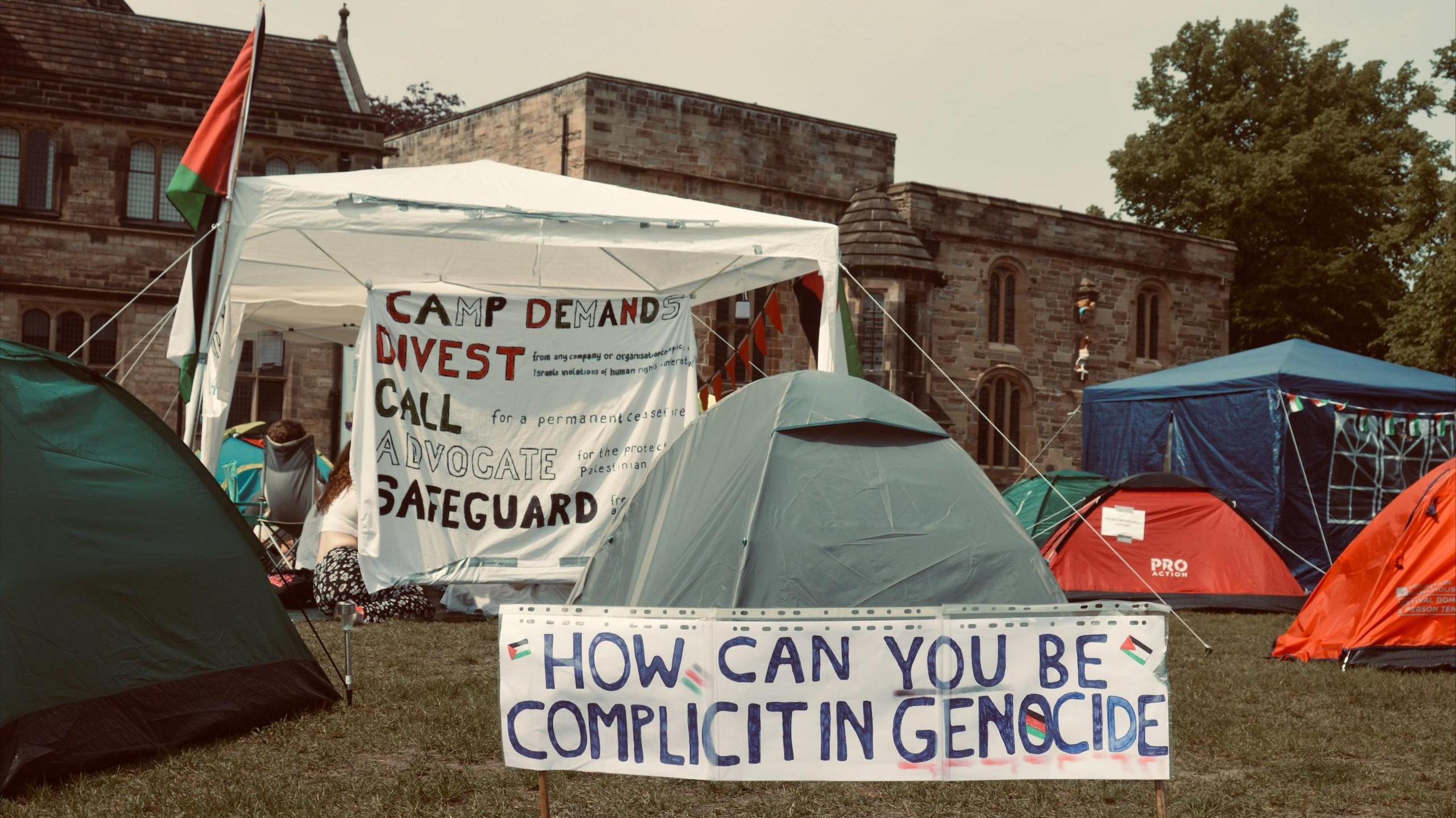
- Published8 November 2023
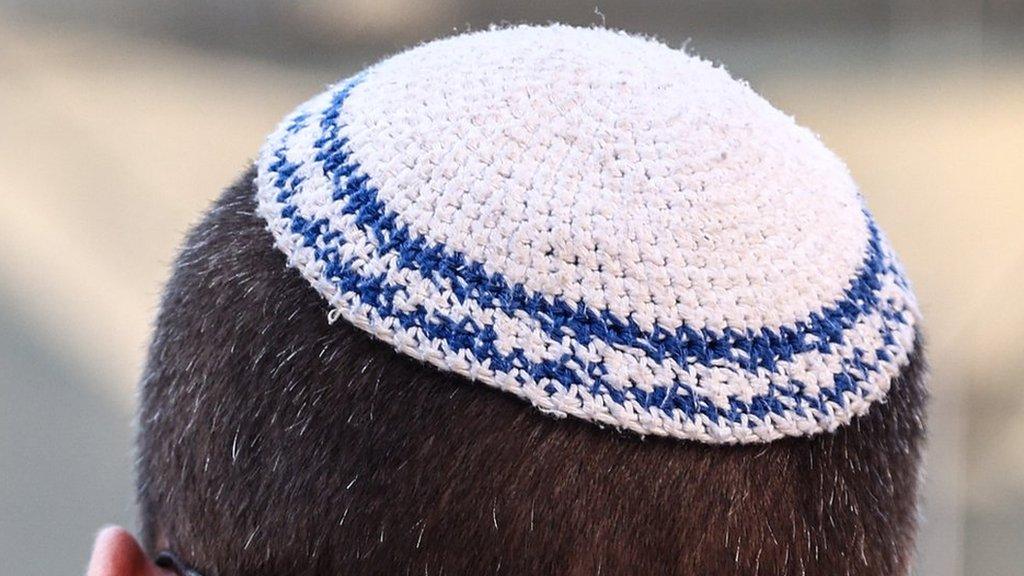
- Published9 May 2024
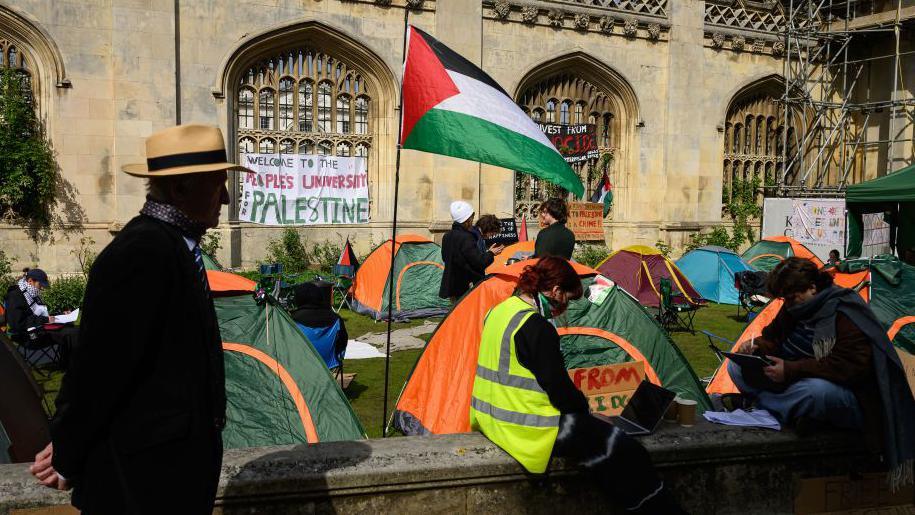
- Published2 May 2024
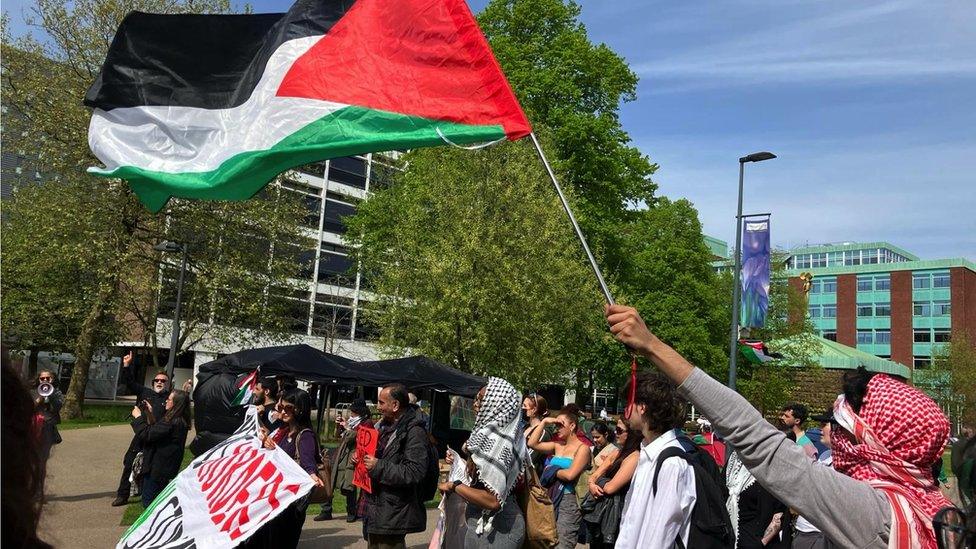
- Published5 May 2024
